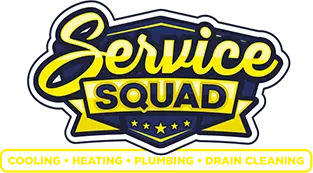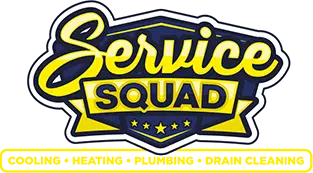Top Causes of Drain Blockages and How to Prevent Them
Dealing with a blocked drain can disrupt your day and lead to unwanted stress and expenses. It’s a common issue that many homeowners face, but often, these blockages are preventable. Understanding what causes these plumbing problems is the first step towards maintaining a clear and functional drainage system. At Service Squad, we encounter various blockage issues in our daily operations and recognize the patterns and practices that often lead to these plumbing challenges.
Many drain blockages stem from ordinary household habits that can easily be adjusted. Whether it’s the way kitchen waste is disposed of or the types of products flushed down the toilet, several common practices contribute to these issues. By familiarizing yourself with these causes, you can take proactive steps to prevent blockages before they occur.
Explore the typical culprits behind clogged drains, from everyday household items to natural occurrences such as tree root intrusion. Our goal is to equip you with the knowledge and tips to keep your drains flowing smoothly, helping you avoid the inconvenience and cost of frequent plumbing emergencies. Let’s delve into understanding these causes and learning how to effectively prevent them to maintain a healthy plumbing system.
Common Household Items That Cause Drain Blockages
One of the most frequent causes of drain blockages that we encounter involves common household items that mistakenly end up down the drain. Items such as wipes, feminine hygiene products, and even excessive amounts of toilet paper can create significant clogs. Unlike toilet paper, which is designed to dissolve in water, items like baby wipes and sanitary products do not break down and can quickly accumulate, blocking the flow of water.
Kitchen drains also suffer frequently from blockages due to food waste and small objects. Coffee grounds, eggshells, and starchy foods like rice or pasta expand in water, further exacerbating the blockage risk. Even with a garbage disposal, certain materials should never go down the sink. Educating everyone in the household about what shouldn’t go down the drains is a vital step in preventing these frustrating and potentially costly blockages.
How Grease and Oil Affect Your Drainage System
Grease and oil are particularly insidious culprits in drain blockages. When washed down the kitchen sink, these substances can initially appear harmless as they’re in liquid form. However, as they cool and solidify, they adhere to the inner walls of your drainage pipes, gradually building up to create a significant blockage. This buildup not only restricts water flow but can also catch other debris, which compounds the blockage issue.
To prevent grease-related blockages, it is crucial to dispose of oil and grease in the trash instead of washing them down the sink. Pouring hot water down the drain mixed with grease might seem like a solution, but it often just pushes the problem further down into the sewer system, where it can cause even larger issues. Our professionals recommend using containers like an old jar or can for collecting excess grease and oil, which can then be thrown away securely in the trash once solidified. This simple practice can save a lot of hassle and the expense of calling out a plumber to clear a grease-clogged pipe.
The Role of Tree Roots in Sewer Line Blockages
One of the more challenging issues for underground pipes, particularly sewer lines, comes from tree roots seeking moisture. Even small cracks or joints in your sewage system can attract tree roots, which slowly intrude into these openings to access the water and nutrients inside. Over time, these roots can grow large enough to significantly obstruct the flow, or even cause damage to the pipes themselves, leading to leaks and severe blockages.
The solution involves a blend of vigilance and professional intervention. Regular inspections can identify potential root intrusions early before they develop into larger problems. If roots are already present, methods like hydro jetting or root cutting may be necessary to remove the tree roots and prevent further growth. This is a job for professionals who can ensure that the removal is effective without damaging the pipes further.
Preventive Measures to Protect Your Drains
Preventing drain blockages doesn’t just save time and money; it also helps maintain the health and longevity of your plumbing system. One simple step is to use drain strainers in sinks, showers, and tubs to catch hair, soap bits, and other debris. Regularly cleaning these strainers will prevent these materials from entering your pipes.
Additionally, be cautious about what you flush down the toilet—only human waste and toilet paper should go down. Even products labeled as “flushable” like certain wipes can still create blockages. For kitchens, avoid disposing of food scraps, coffee grounds, and grease down the sink. Instead, use a compost bin for organic materials, and dispose of grease and oils in the trash after cooling.
Keep Your Plumbing Flowing Smoothly
Taking care of your drains requires awareness and regular upkeep. At Service Squad, we are dedicated to providing you with effective solutions and helpful advice to keep your plumbing system running efficiently. Whether it’s removing stubborn blockages or offering preventive maintenance, our professionals are here to assist you.
If you suspect a blockage or just want to get ahead of potential issues, don’t hesitate to give us a call. Our team at Service Squad is ready to help clear your drains and provide top-notch plumbing services in San Marino, CA, and surrounding areas to protect your home’s plumbing. Let us help you maintain a free-flowing system for a stress-free living environment!

